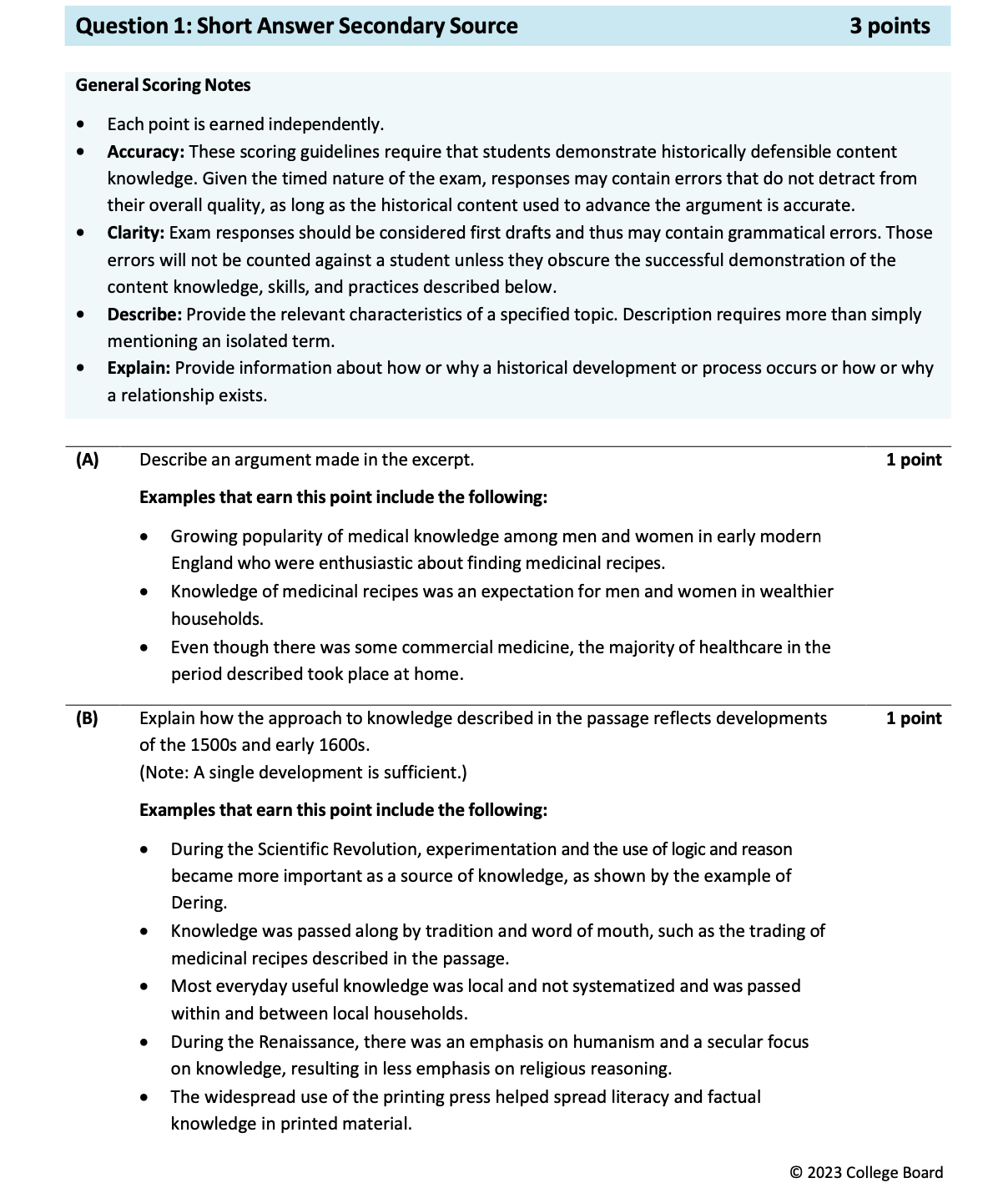Navigating AP Euro SAQs: A Guide to Official Scoring Criteria
Let's demystify the art of acing Short Answer Questions (SAQs), courtesy of the official scoring guidelines from the 2023 AP Euro exam.
Back in 2023, the AP Euro kids of Olde navigated the exam that's now on your horizon for this May. Here lies a golden opportunity to sharpen your edge: by understanding precisely what graders (folks very much like yours truly) are on the lookout for, based on the scoring guidelines we follow.
This insight into the grader's criteria is your key to boosting performance. Let's delve into the grader's viewpoint and learn how to strategically tailor your responses to align with their expectations. Ready to unlock this advantage?
Independence is Key: Every SAQ question (a, b, and c) operates like its own mini-universe, each with its scoring criteria.
To ace each part, treat them as individual tasks requiring specific, focused answers.
By honing in on the specifics of each part, you ensure that you're giving exactly what the examiners are looking for, maximizing your points across the board.
Accuracy Matters, but Not as Much as You Think: Accuracy in your SAQs is like hitting the bullseye in archery; the closer you are to the historical truth, the higher your score. However, just as an archer’s arrow might slightly miss the center yet still score points, your essay can have minor inaccuracies and still succeed if your main argument stands strong.
This leniency acknowledges the pressure of timed exams and the complexity of historical events.
Focus on ensuring your overarching narrative is historically solid, and don't get paralyzed by the fear of minor mistakes.
Clarity Over Obsessive Grammar: Your SAQ responses should prioritize clear and coherent historical reasoning over grammatical perfection, or how you think your essay “sounds.” The examiners are looking to understand your historical argument and analysis, not grade an English paper.
While basic readability is necessary (don’t get downright sloppy, of course), a misplaced comma won't be your downfall.
Detailed Descriptions: When describing, go beyond mere mentions to provide specific characteristics or explanations.
Instead of simply stating, "The Industrial Revolution was impactful," delve into the "how" and "why," perhaps detailing the transformation of rural societies into urban industrial hubs, the mechanization of labor, and the subsequent social changes.
These details add depth and life to your response, making it more engaging and informative.
Keep reading with a 7-day free trial
Subscribe to AP Euro Explorer to keep reading this post and get 7 days of free access to the full post archives.





